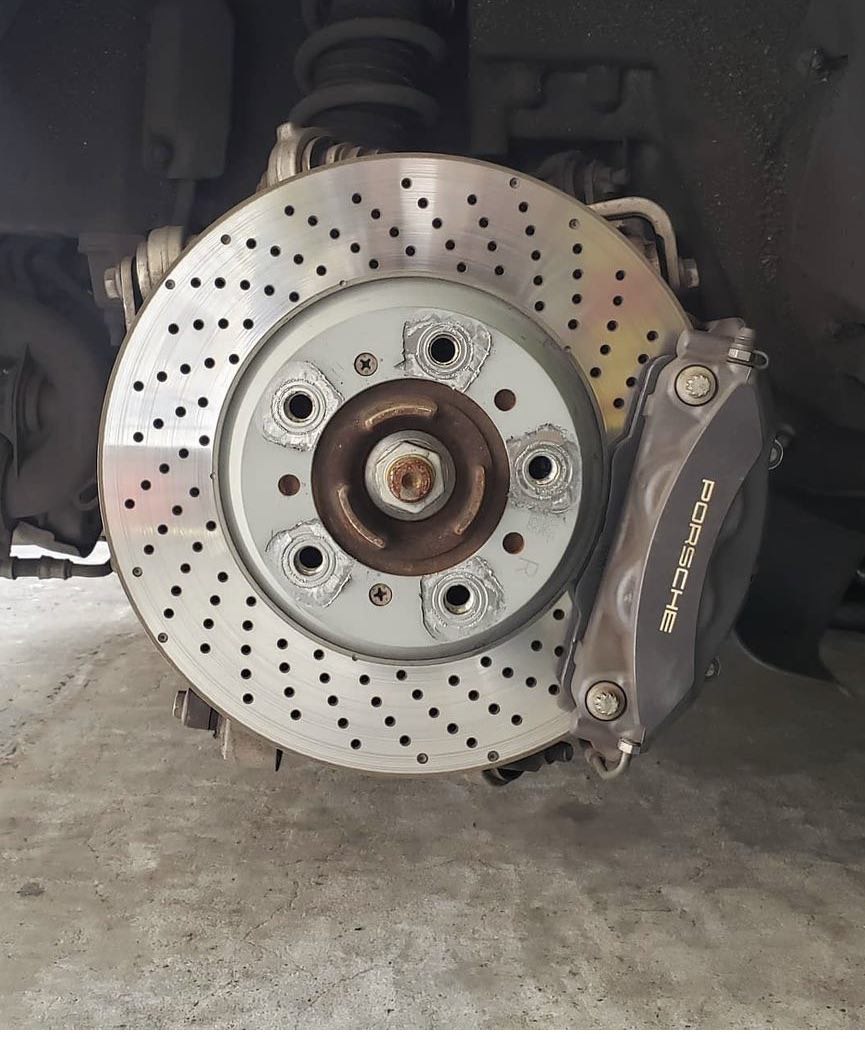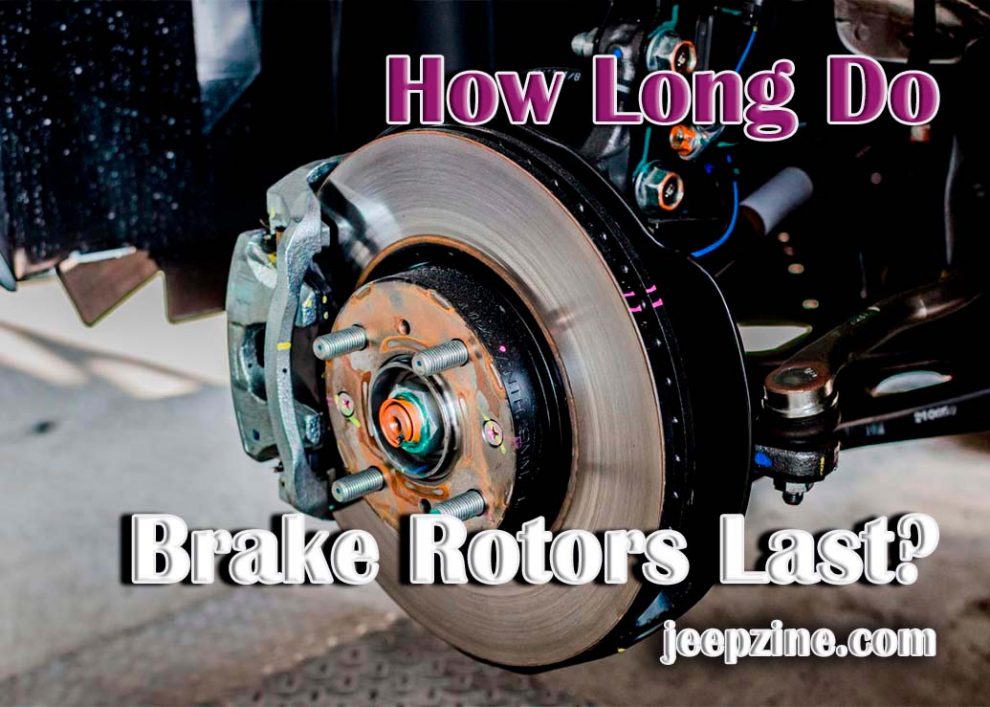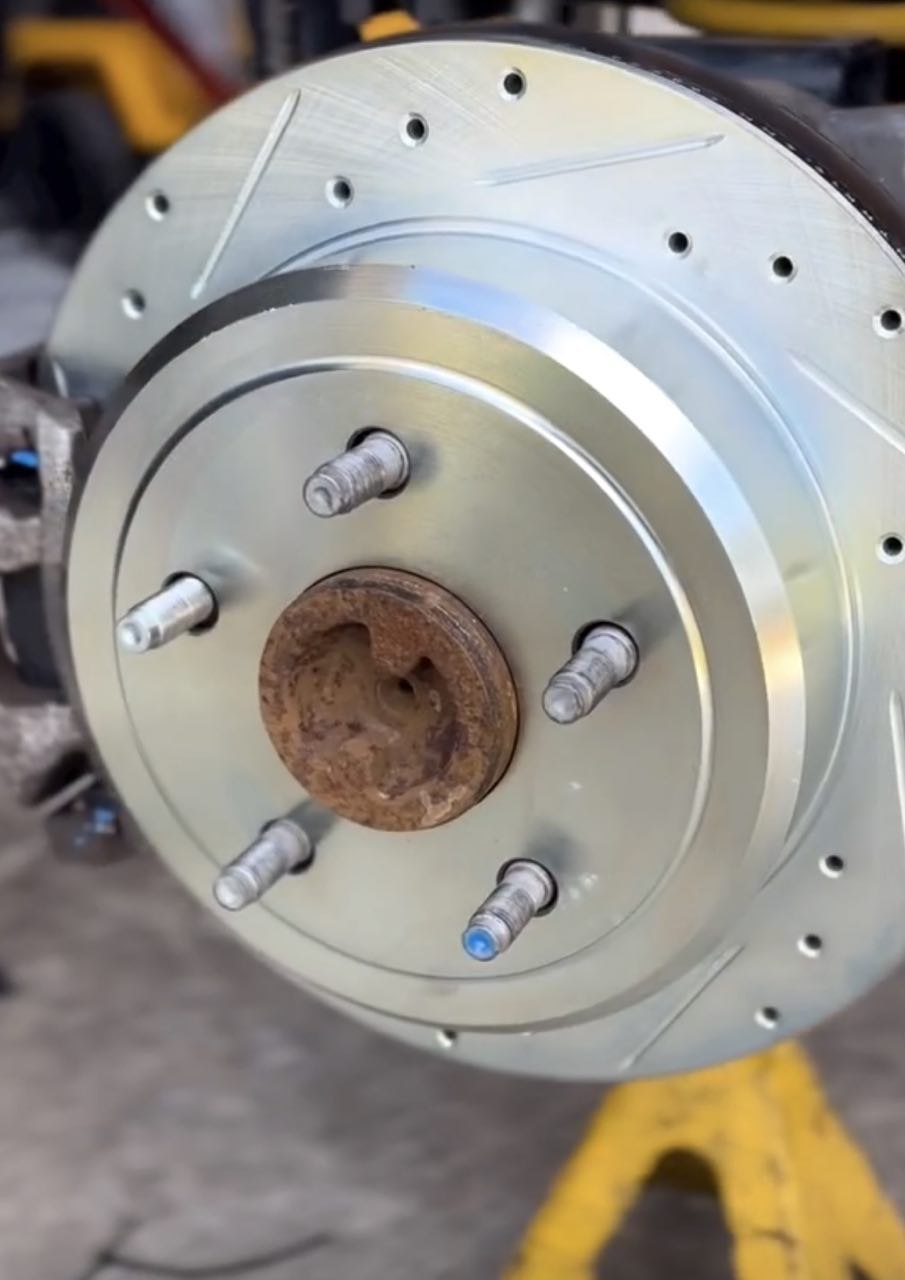Brake rotors, or discs, are integral to your vehicle’s braking system. If you’re wondering how long they last, the answer depends on various factors, including the type of vehicle you drive and how often it needs to be serviced. Regular inspection and maintenance play a significant role in prolonging their lifespan. By monitoring wear and tear and promptly addressing any issues, you can ensure optimal performance from your braking system. In this article, we will discuss the lifespan of brake rotors and explore ways to maximize their longevity through proper care and maintenance.
What Is a Brake Rotor?

Brake rotors come in many shapes and can be made of iron, cast iron, aluminum, or steel alloys. Their sizes depend on the type of vehicle and its intended use. Larger vehicles or those designed for high-performance driving might require bigger, thicker rotors to handle increased braking demands. Over time, with frequent repeated braking, rotors can wear down, become warped, or develop grooves. When this happens, they may need to be resurfaced or replaced to ensure effective braking and driver safety.
How Long Do Brake Rotors Last?
The life expectancy of brake rotors depends on several factors, including the type of vehicle you drive, how often you service your brakes, and driving conditions. On average, brake rotors last between 30,000 and 70,000 miles, depending on the road conditions in which they are used. However, some manufacturers suggest replacing them at around 40,000 miles. However, if your driving style is more aggressive—such as frequent hard braking or downhill driving—they may need to be replaced sooner. It’s also important to factor in regular maintenance when considering brake rotor lifespan; properly serviced brake systems have better longevity in the long run. Also read about Best Brake Rotors for F250.
Factors That Impact Brake Rotor Life Expectancy
Several factors can impact the life expectancy of your brake rotors. Driving habits, the quality of materials used, and how often you get your brakes serviced are all important considerations:
-
Driving Habits: Aggressive driving or frequent braking can cause premature wear on the rotor surfaces, resulting in shorter lifespans for these components.
-
Quality of Materials Used: The quality of the material used to make the brake rotors can affect their lifespan. High-quality rotors can last longer than those made with cheaper materials.
-
Maintenance Schedule: Regular inspection and maintenance activities significantly prolong the life expectancy of brake rotors by ensuring they are functioning correctly and addressing any issues promptly before they become serious problems that require costly repairs or replacements.
-
Environmental Conditions: Changes in temperature or humidity levels can also affect rotor life expectancy due to corrosion or rusting that may occur over time if left unchecked.
Recognizing Signs of Wear and Tear on Your Brakes
You must be aware of any signs of wear and tear on your brakes and address them promptly. Common symptoms include grinding or squealing noises when braking, decreased stopping power, vibration when braking, or brake pedal pulsation. Soft or spongy brake pedals could indicate air or moisture in the brake fluid lines, which require immediate attention. Visual cues like a dashboard warning light related to the brakes or uneven wear on the brake pads can also point to issues. Regularly inspecting your brake system and addressing these signs promptly ensures your safety and prevents more extensive and expensive damage to your vehicle in the long run.
 Ways to Increase the Lifespan of Your Brake Rotors
Ways to Increase the Lifespan of Your Brake Rotors
Adopting a smooth and anticipatory driving style can significantly reduce the frequency of sudden and harsh braking, leading to excessive wear on the rotors. Regular brake system maintenance, including brake pad inspections and replacements, is equally vital. Worn-out brake pads can cause increased friction and heat, accelerating rotor deterioration. Avoiding unnecessary overloading of your vehicle and using engine braking on downhill descents can minimize the rotor strain. It’s essential to promptly address leaks, as contaminated brake fluid can corrode the rotors. Lastly, selecting high-quality brake rotors and pads suitable for your driving habits and vehicle type can substantially affect rotor longevity.
Conclusion
Now that you know the factors affecting their longevity, the average lifespan, signs indicating replacement, and preventive measures to extend their lifespan, you can take better care of your vehicle’s braking system. To ensure your brake rotors last as long as possible, regularly inspect them for any signs of wear and tear. If you notice any vibrations or pulsations while braking or hear unusual noises, it’s time to get them checked by a professional. Remember, your safety on the road depends on properly functioning brakes.


 Ways to Increase the Lifespan of Your Brake Rotors
Ways to Increase the Lifespan of Your Brake Rotors